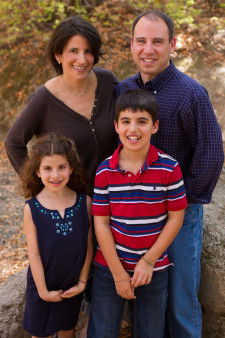On Psycho-Oncology Departments & Parachuting into Guerrilla Wars

Photo by DVIDSHUB
Nonsensical department divisions aside, I tried to follow up on the referral when I got home. I went onto the Stanford Medical website. I couldn’t find the Psychology department, much less any sub-specialty in oncology. Well, maybe the doc misspoke, maybe it’s under Oncology? Nope. OK, Psychiatry? Strike out. Maybe it is in the Integrative or Palliative Clinics? Yeah … no. I started to question the existence of this “psycho oncology” department … maybe I should contact the Philosophy department??
Stumped, I left a message for my oncologist, “Who do I call to follow up on this referral again?” I got a phone number in reply, which I called and thus began a fun week of voicemail jail. Seven business days later, I lost my patience and dusted off my lawyer voice: “Look,” I said sternly to the poor soul who had the misfortune to pick up the line this time, “I’m not sure if I needed a psycho-oncology department before I got the referral and went down this rathole, but I sure as hell need one now,” I ranted. Turns out my legal training is good for something after all; two hours later I got a call from someone able to book me an appointment in this top secret department.
“Department” may be a bit of a misnomer. Turns out it’s one person, working one day a week, servicing the entire patient population at the cancer center. The soonest available appointment was almost three months out. Good thing I wasn’t already living on borrowed time, past my predicted survival time and an emotional wreck when I got the referral back in early March … oh wait…
A couple weeks ago, I finally had my appointment. When I arrived, the practitioner congratulated me on finding her and explained that this psycho-oncology department is deliberately under the radar (no web presence, no phone number, not even a listing in their internal database) due to privacy concerns. This was a bit of a head-scratcher for me. I don’t understand how it violates anyone’s privacy to simply publish the department name and contact information.
Anyhow, the practitioner was excellent. She understood the unique issues a cancer patient might face (as well as the not-so-unique ones that annoyingly persist even while cancer is rocking your world), and she had some very practical and helpful tools and suggestions. Unfortunately, although not surprisingly, she does not have to bandwidth to assist patients on a long-term basis. She offered to meet with me a few times more, but warned that she might need to refer me to another provider outside the cancer center if I wished for ongoing support. That’s cool. I’m sure we can resolve this whole Stage IV thing in two or three sessions [eye roll].
Since the moment I was diagnosed, the medical system has addressed my disease with impressive alacrity. All along the way great care has been taken to monitor and evaluate every aspect of my physical status. But there has been a huge gaping hole in the care. No one was talking to me, teaching me how to be a person with cancer. Michael Lerner, founder of Commonweal’s Cancer Help Program once said: “A cancer diagnosis is like being pushed out of an airplane with a parachute into a jungle, into a guerrilla war, with no training and no weapon and the expectation that you’ll survive. And the sense is that only the medical professionals need training and that the person with cancer really doesn’t need training, and it seems to me that one does need training to deal with this.” Touche, Michael Lerner, touche.
It’s to my medical center’s credit that there even is a psycho-oncology department at all. However, it’s a very modest start. Addressing the psychological and emotional aspect of this disease can be as critical to patients’ well-being as their medications. One person, working one day a week in a top-secret invisible department, to support the thousands of patients at the cancer center is like pissing on a forest fire. From where I sit, it’s obvious that this is a desperately needed service, and one that ought to be offered at the outset. I don’t think there should be any shame in admitting that so many of us do need some training to deal with this. I sincerely hope to see this field come out of the closet and expand rapidly, although I might humbly suggest a name change. “I’m going to see my psycho oncologist” doesn’t have the most appealing ring to it.


